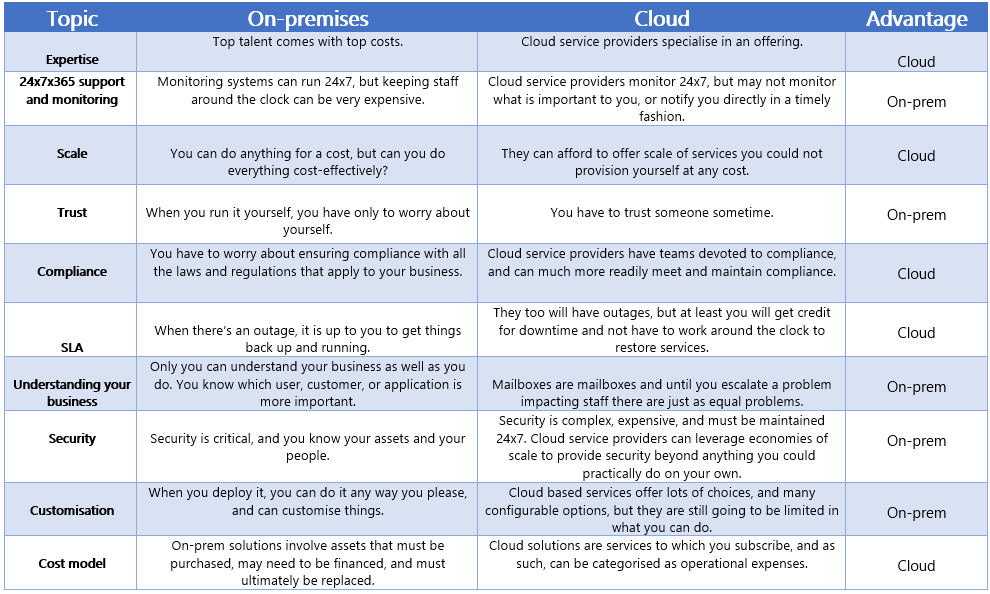To cloud or not to cloud? It’s a question a lot of clients are asking more often and is undoubtedly one of the biggest trends in the IT industry right now. The choice is usually based on a number of criteria’s, making it a seemingly overwhelming task. Let’s start with some definitions…
Cloud:
The National Institute of Standards and Technology (NIST) established five essential characteristics of cloud computing.
- Self-service which is on demand: firstly, the services are agreed and established, then the customer is able to provision new users, services, virtual machines, etc. Without involving the cloud service provider.
- Network access: due to cloud services typically being accessed over the Internet, as opposed to being on an internal network people often worry they are not secure. However, they are only accessible over private connections.
- Resource pooling: there is some degree of shared resources from which services draw as needed.
- Rapid elasticity: sometimes customers may want to amend things or change their contract. The service will expand or contract with those needs.
- Measured service: customers are billed based on some measured consumption. However, you only pay for what you use.
On-Premise:
On-premises solutions are those that are deployed in the more traditional manner and are most common. The servers are acquired, operating systems are installed, other hardware may be involved, but all of that lives within your four walls. The customer is responsible for the security, availability and overall management of on-premises software. However, the vendor also provides after sales integration and support services. On-premises solutions are considered the most secure, as the entire instance of software remains on the organisation’s premises. Although, you may outsource management to a service integrator, you would still provide the physical security, the electricity, and the balance sheet entries to carry the assets.
So, which is best?
Like so many IT questions, the answer is “it depends.” What it depends on is largely dependent upon a number of things about your company. Here are some things to consider:

It looks like a split decision, but each of these ten categories is going to be weighted differently depending upon your business and your needs. There are times where both may be the better choice, depending on circumstance the right choice is up to you. Weigh up each option based on what you think is most important for you, and then see which scores higher.



